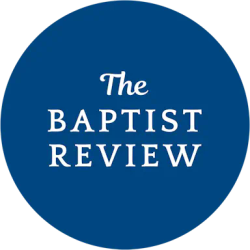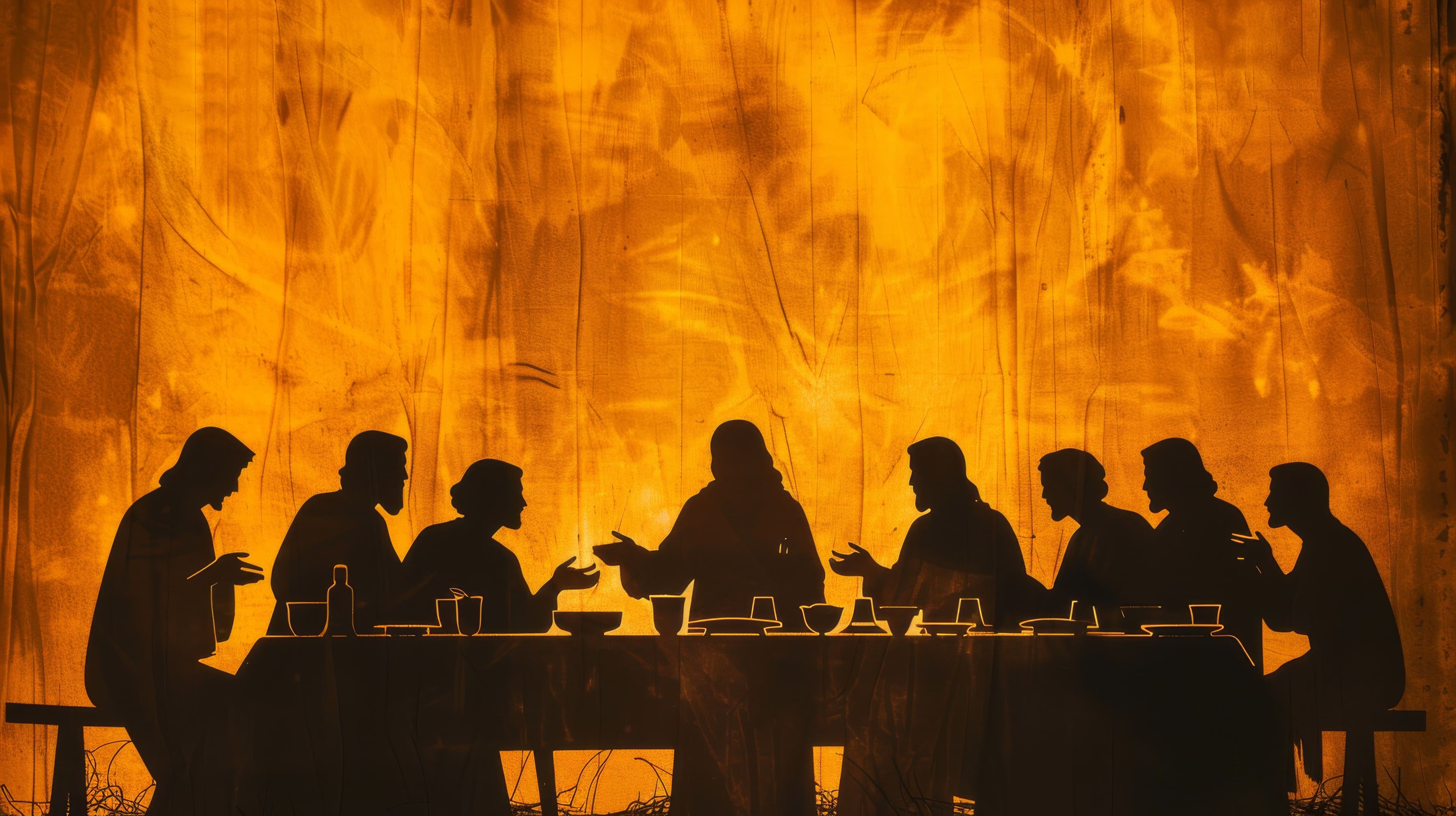As we approach yet another Southern Baptist Convention annual meeting, we need to carefully note that which was uppermost in Christ's mind as he was within hours of the cross. A person’s last words are of vital importance to him, and this prayer of Jesus in John 17 has never made the impression on the church that it deserves. In fact, we have largely ignored his prayer for us.
The disciples had just completed the first observance of the Lord's Supper, which sets the stage for our Lord's prayer in John 17. Did you ever wonder why Jesus chose wine and bread as the elements of the Lord's Supper? There are some obvious reasons: wine is a liquid and thus represents his blood that was shed on the cross. Bread represented the broken body of Christ on the cross and the need for all believers to be saturated with the nourishment of the Word of God. But there is more.
Someone has suggested that the wine and bread has a deeper meaning. One grape cannot make wine and one grain of wheat cannot make bread. Both must first be crushed, then joined together with other grapes and grains. In that process they lose their identity and can never be separated again. Both must give themselves up! No room for selfish designs or individual concerns. They have been joined together for a greater purpose.
Jesus asked God to give unity to his church. By that fact we understand that unity is received, not achieved. It is not the result of human activity; it is God’s gift. His unity has its origin in divine action, not human manipulation. Spiritual unity cannot be organized by man, but can only be vitalized by the Spirit of God.
He prayed not only for the eleven, “but also for those who believe in Me through their message” (vs. 20). On the eve of the cross, Jesus saw a long line of believers who would be saved as a result of the message he had given those first disciples. He saw Peter and the thousands at Pentecost who believed. Looking at John he saw the church at Ephesus and those in Roman Asia. Looking at the empty place left by Judas, he saw Saul of Tarsus who became Paul the Apostle, all the churches in Europe, and the spread of the gospel over the ages.
At that moment, his supernatural view extended across oceans and centuries, and he saw a great multitude of millions of believers. His vision was so vivid that he literally used a present tense verb as he spoke of “those who believe in me as through their (disciples’) word” (John 17:20). It was as if future believers were already marching through his mind as Jesus consciously prayed for all believers of all times. He saw the twentieth and twenty-first centuries and the Southern Baptist Convention. He even saw the convention which convenes in a few weeks in Indianapolis. And he prayed for our unity!
Merrell C. Tenney wrote,
"Unity is another factor in eternal life. The final prayer of Jesus for the believers as a whole was that they should be one. A clear distinction should be drawn between four closely allied concepts: unanimity, uniformity, union, and unity. Unanimity means absolute concord of opinion within a given group of people. Uniformity is complete similarity of organization or of ritual. Union implies political affiliation without necessarily including individual agreement. Unity requires oneness of inner heart and essential purpose, through the possession of a common interest or a common life. No one of these is dependent on any other. Unanimity of belief does not necessarily mean uniformity of ritual; nor does uniformity of ritual presuppose organic union; nor does organic union involve unity of spirit.”
The grand movement of Christianity since the resurrection of Jesus Christ is a miracle of divergence. The new birth brought into the church a wide variety of historical, denominational, and personal individuals. The apostle Paul was once the chief persecutor of believers, yet he became the poster boy for the transforming power of the gospel. John and Charles Wesley were remarkable friends with George Whitfield, and though they had significant theological distinctives that contradicted each other’s convictions, there was a deep unity of purpose that drove them forward together.
Historically, Christianity has seen great disagreement among believers, yet the Great Commission was the foundation upon which friendships and ministries were built. That was what the prayer of Jesus was all about. He prayed, “Father, May they all be one, as you, Father, are in me and I am in you…so that they may be made completely one.’ (vs. 21. 23). This unity reveals that it is based on relationships which lay in the transformation of their lives and passion for their God-given assignment.
Jesus did not ask that they would always agree on everything, nor became clones of each other. Their methods may vary and differ, they may wrestle with difficult issues, but never absolute unanimity or uniformity of practice. He prayed for the internal unity of spiritual devotion that would send his followers to infuse the world with a visible picture of his gospel that would be used of the Holy Spirit to literally change the world (John 17:23).
With that in mind let me give some suggestions for our upcoming annual meeting in Indianapolis.
First, this convention is a gathering of born-again believers whose primary purpose is to proclaim the gospel of Jesus Christ. Every messenger has one vote on the issues before this coming convention. When you, as a messenger, place your vote, you give it away. It is no longer yours, but now belongs to the convention. You are not a convention of one, but you belong to a remarkable body of believers who have been organized for God’s glory for over 170 years. When the vote is taken, your vote is included. And if your position does not carry the vote, it is inappropriate for you to use your influence and energies to discredit or oppose the outcome. You cast your vote, and it no longer belongs to you. The decision was made as a body, and it should have everyone’s support.
Second, Christian grace and kindness should be expressed by every messenger who has the privilege of speaking to the issue in the convention. Our unity is not of the nature that we all think the same way or agree on everything. We will often disagree on issues, but we are led by a stronger reality than our opinion. We treat others in the spirit of Jesus, giving respect and expressing our convictions without venom. There is never a reason to treat other believers with hostility or disrespect.
Paul clearly described how we ought to treat other believers:
“If then there is any encouragement in Christ, if any consolation of love, if any fellowship with the Spirit, if any affection and mercy, make my joy complete by thinking the same way, having the same love, united in spirit, intent on one purpose. Do nothing out of selfish ambition or conceit, but in humility consider others as more important than yourselves.” (Philippians 2:1-3)
Our system by which we make decisions in our convention is not perfect—but none of us is perfect, either. We are together in the body of Christ and must treat each other without hostility or disrespect. Cast your vote, then join with the convention in moving forward in harmony and without dissension.
I am not suggesting that we should not debate issues or have strong convictions. Rather, I am expressing my deep belief that differences should not create chaos or anger. In issues that are specifically theological, lively discussion should not result in losing our focus on why we are organized in the first place. It is not about us! We are Christ’s body. He is our head, and we exist to propagate the gospel of the cross by which we are saved.
I once had an outstanding Christian educator on our staff where I served. We differed on one specific point of theology and discussed it often. When we finished discussing those issues, he would smile at me and say, “You know, we could both be wrong!” During the years of the Conservative Resurgence, I had a friend whom I met while in my teens. He was one of the visible leaders of the opposition to the Conservative Resurgence. We disagreed on just about everything, yet during those years we swapped hand-written letters and cherished the relationship we shared. Strong convictions don’t have to be brutal!
There are many biblical truths that are open to different interpretations. We may differ about whether the Rapture will come before or after the tribulation, or hold different opinions about strategies of missions or evangelism. We may have different concepts about the exercise of the gifts of the Holy Spirit or have differences in worship styles and how we arrange our services. We may discuss and debate these issues, but we must never fight over them.
When we deal with heretical teachings that undermine the very gospel we proclaim, we must stand against that. However, with fellow believers, we must never let our differences become so embittered as we tell the truth in love! (Ephesians 4:15)
Christians will never organize their churches all in the same way. They will never all worship God in the same way. It will never be that they will all believe precisely and exactly the same things. But Christian unity is a unity which transcends all these differences and joins men together in love. It is precisely that unity among the first disciples which convinced the world of the truth of their faith!
Paul told the Ephesian church, “For our struggle is not against flesh and blood, but against the rulers, against the authorities, against the cosmic powers of this darkness, against evil, spiritual forces in the heavens.” (Ephesians 6:12)
We are not in battle against other believers. We should have common ground rather than a battleground. We must never let our purpose as a convention be compromised by allowing the strong foundation of the Great Commission descend into a warfare of personal opinions and causing us to disgrace and contradict the grace we have received from the Lord. God does not use any of us because of us, but always in spite of us. That is the grace we have received, and it ought to be the grace we give to each other.
Editor's Note: As a part of its commitment to fostering conversation within the Southern Baptist Convention, the Baptist Review may publish editorials that espouse viewpoints that are not necessarily shared by the TBR team or other contributors. We welcome submissions for responses and rebuttals to any editorials as we seek to host meaningful conversations about the present and future of our convention.

Join the Baptist Review for our Presidential Forum in Indianapolis on Monday, June 10 at 9pm. Registration is required for attendance.


